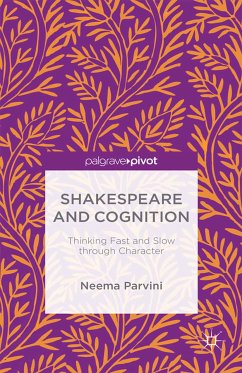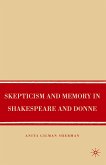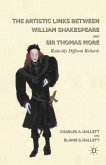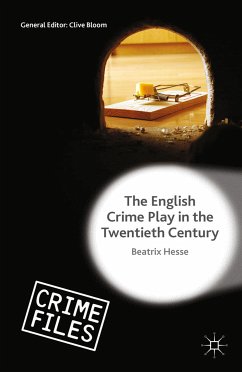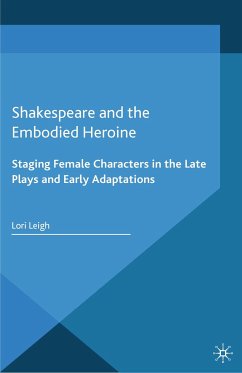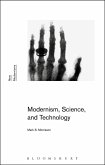Spectacular Science, Technology and Superstition in the Age of Shakespeare (eBook, PDF)
Redaktion: Chiari, Sophie; Popelard, Mickael
0,00 €
0,00 €
inkl. MwSt.
Sofort per Download lieferbar

0 °P sammeln
0,00 €
Als Download kaufen

0,00 €
inkl. MwSt.
Sofort per Download lieferbar

0 °P sammeln
Jetzt verschenken
Alle Infos zum eBook verschenken
0,00 €
inkl. MwSt.
Sofort per Download lieferbar
Alle Infos zum eBook verschenken

0 °P sammeln
Spectacular Science, Technology and Superstition in the Age of Shakespeare (eBook, PDF)
Redaktion: Chiari, Sophie; Popelard, Mickael
- Format: PDF
- Merkliste
- Auf die Merkliste
- Bewerten Bewerten
- Teilen
- Produkt teilen
- Produkterinnerung
- Produkterinnerung

Bitte loggen Sie sich zunächst in Ihr Kundenkonto ein oder registrieren Sie sich bei
bücher.de, um das eBook-Abo tolino select nutzen zu können.
Hier können Sie sich einloggen
Hier können Sie sich einloggen
Sie sind bereits eingeloggt. Klicken Sie auf 2. tolino select Abo, um fortzufahren.

Bitte loggen Sie sich zunächst in Ihr Kundenkonto ein oder registrieren Sie sich bei bücher.de, um das eBook-Abo tolino select nutzen zu können.
To the readers who ask themselves: What is science?'', this volume provides an answer from an early modern perspective, whereby science included such various intellectual pursuits as history, poetry, occultism and philosophy.
- Geräte: PC
- mit Kopierschutz
- eBook Hilfe
- Größe: 20.68MB
- FamilySharing(5)
Andere Kunden interessierten sich auch für
![Shakespeare and Cognition (eBook, PDF) Shakespeare and Cognition (eBook, PDF)]() N. ParviniShakespeare and Cognition (eBook, PDF)40,95 €
N. ParviniShakespeare and Cognition (eBook, PDF)40,95 €![Skepticism and Memory in Shakespeare and Donne (eBook, PDF) Skepticism and Memory in Shakespeare and Donne (eBook, PDF)]() A. ShermanSkepticism and Memory in Shakespeare and Donne (eBook, PDF)40,95 €
A. ShermanSkepticism and Memory in Shakespeare and Donne (eBook, PDF)40,95 €![Transport in British Fiction (eBook, PDF) Transport in British Fiction (eBook, PDF)]() Transport in British Fiction (eBook, PDF)72,95 €
Transport in British Fiction (eBook, PDF)72,95 €![The Artistic Links Between William Shakespeare and Sir Thomas More (eBook, PDF) The Artistic Links Between William Shakespeare and Sir Thomas More (eBook, PDF)]() C. HallettThe Artistic Links Between William Shakespeare and Sir Thomas More (eBook, PDF)40,95 €
C. HallettThe Artistic Links Between William Shakespeare and Sir Thomas More (eBook, PDF)40,95 €![The English Crime Play in the Twentieth Century (eBook, PDF) The English Crime Play in the Twentieth Century (eBook, PDF)]() Beatrix HesseThe English Crime Play in the Twentieth Century (eBook, PDF)40,95 €
Beatrix HesseThe English Crime Play in the Twentieth Century (eBook, PDF)40,95 €![Shakespeare and the Embodied Heroine (eBook, PDF) Shakespeare and the Embodied Heroine (eBook, PDF)]() L. LeighShakespeare and the Embodied Heroine (eBook, PDF)40,95 €
L. LeighShakespeare and the Embodied Heroine (eBook, PDF)40,95 €![Modernism, Science, and Technology (eBook, PDF) Modernism, Science, and Technology (eBook, PDF)]() Mark S. MorrissonModernism, Science, and Technology (eBook, PDF)22,95 €
Mark S. MorrissonModernism, Science, and Technology (eBook, PDF)22,95 €-
-
-
To the readers who ask themselves: What is science?'', this volume provides an answer from an early modern perspective, whereby science included such various intellectual pursuits as history, poetry, occultism and philosophy.
Dieser Download kann aus rechtlichen Gründen nur mit Rechnungsadresse in A, B, BG, CY, CZ, D, DK, EW, E, FIN, F, GR, HR, H, IRL, I, LT, L, LR, M, NL, PL, P, R, S, SLO, SK ausgeliefert werden.
Produktdetails
- Produktdetails
- Verlag: Edinburgh University Press
- Erscheinungstermin: 1. September 2017
- Englisch
- ISBN-13: 9781474427838
- Artikelnr.: 54681117
- Verlag: Edinburgh University Press
- Erscheinungstermin: 1. September 2017
- Englisch
- ISBN-13: 9781474427838
- Artikelnr.: 54681117
- Herstellerkennzeichnung Die Herstellerinformationen sind derzeit nicht verfügbar.
Sophie Chiari is Professor of Early Modern English Literature at Clermont Auvergne University, France. She has written several books and articles on Shakespeare and his contemporaries. Her recent publications include Shakespeare's Anatomy of Wit: Love's Labour's Lost (2014) and As You Like It: Shakespeare's Comedy of Liberty (2016). She also recently edited The Circulation of Knowledge in Early Modern English Literature (2015). Mickaël Popelard is Senior Lecturer in English studies at the University of Caen- Normandie, France. He has written several articles on Shakespeare and Bacon, as well as a monograph on Francis Bacon (Francis Bacon: l'humaniste, le magicien, l'ingénieur, 2010) and a book on the figure of the scientist in Shakespeare's The Tempest and Marlowe's Doctor Faustus (Rêves de puissance et ruine de l'âme: la figure du savant chez Shakespeare et Marlowe, 2010).
Acknowledgements
Note on Contributors
Textual Note
General Introduction
I. Popular Beliefs
1. The 'Science' of Astrology in Shakespeare's Sonnets, Romeo and Juliet and King Lear, François Laroque
2. Staging Devils and Witches: Did Shakespeare Read Reginald Scot's The Discoverie of Witchcraft?, Pierre Kapitaniak
II. Healing and Improving
3. "Remedies For Life": Curing Hysterica Passio in Shakespeare's Othello, Macbeth and The Winter's Tale, Sélima Lejri
4. "More, I prithee, more": Melancholy, Musical Appetite and Medical Discourse in Shakespeare's Twelfth Night, Pierre Iselin
5. Saving Perfection from the Alchemists: Shakespeare's Use of Alchemy, Margaret Jones-Davies
III. Knowledge and (Re)Discoveries
6. Of Mites and Motes: Shakespearean Readings of Epicurean Science, Jonathan Pollock
7. Shakespeare's Alhazen: Love's Labour's Lost and the History of Optics, Anne-Valérie Dulac
8. Shakespeare's Montaigne: Maps and Books in The Tempest., Frank Lestringant
9. Unlimited Science: the Endless Transformation of Nature in Bacon and Shakespeare, Mickaël Popelard
IV. Mechanical Tropes
10. "Vat is de clock, Jack?": Shakespeare and the 'Science' of Time, Sophie Chiari
11. "Wheels have been set in motion": Geocentrism and Relativity in Tom Stoppard's Rosencrantz and Guildenstern Are Dead, Liliane Campos
Coda
Scepticism and the Spectacular: On Shakespeare in an Age of Science, Carla Mazzio
General Bibliography
Index.
Note on Contributors
Textual Note
General Introduction
I. Popular Beliefs
1. The 'Science' of Astrology in Shakespeare's Sonnets, Romeo and Juliet and King Lear, François Laroque
2. Staging Devils and Witches: Did Shakespeare Read Reginald Scot's The Discoverie of Witchcraft?, Pierre Kapitaniak
II. Healing and Improving
3. "Remedies For Life": Curing Hysterica Passio in Shakespeare's Othello, Macbeth and The Winter's Tale, Sélima Lejri
4. "More, I prithee, more": Melancholy, Musical Appetite and Medical Discourse in Shakespeare's Twelfth Night, Pierre Iselin
5. Saving Perfection from the Alchemists: Shakespeare's Use of Alchemy, Margaret Jones-Davies
III. Knowledge and (Re)Discoveries
6. Of Mites and Motes: Shakespearean Readings of Epicurean Science, Jonathan Pollock
7. Shakespeare's Alhazen: Love's Labour's Lost and the History of Optics, Anne-Valérie Dulac
8. Shakespeare's Montaigne: Maps and Books in The Tempest., Frank Lestringant
9. Unlimited Science: the Endless Transformation of Nature in Bacon and Shakespeare, Mickaël Popelard
IV. Mechanical Tropes
10. "Vat is de clock, Jack?": Shakespeare and the 'Science' of Time, Sophie Chiari
11. "Wheels have been set in motion": Geocentrism and Relativity in Tom Stoppard's Rosencrantz and Guildenstern Are Dead, Liliane Campos
Coda
Scepticism and the Spectacular: On Shakespeare in an Age of Science, Carla Mazzio
General Bibliography
Index.
Acknowledgements
Note on Contributors
Textual Note
General Introduction
I. Popular Beliefs
1. The 'Science' of Astrology in Shakespeare's Sonnets, Romeo and Juliet and King Lear, François Laroque
2. Staging Devils and Witches: Did Shakespeare Read Reginald Scot's The Discoverie of Witchcraft?, Pierre Kapitaniak
II. Healing and Improving
3. "Remedies For Life": Curing Hysterica Passio in Shakespeare's Othello, Macbeth and The Winter's Tale, Sélima Lejri
4. "More, I prithee, more": Melancholy, Musical Appetite and Medical Discourse in Shakespeare's Twelfth Night, Pierre Iselin
5. Saving Perfection from the Alchemists: Shakespeare's Use of Alchemy, Margaret Jones-Davies
III. Knowledge and (Re)Discoveries
6. Of Mites and Motes: Shakespearean Readings of Epicurean Science, Jonathan Pollock
7. Shakespeare's Alhazen: Love's Labour's Lost and the History of Optics, Anne-Valérie Dulac
8. Shakespeare's Montaigne: Maps and Books in The Tempest., Frank Lestringant
9. Unlimited Science: the Endless Transformation of Nature in Bacon and Shakespeare, Mickaël Popelard
IV. Mechanical Tropes
10. "Vat is de clock, Jack?": Shakespeare and the 'Science' of Time, Sophie Chiari
11. "Wheels have been set in motion": Geocentrism and Relativity in Tom Stoppard's Rosencrantz and Guildenstern Are Dead, Liliane Campos
Coda
Scepticism and the Spectacular: On Shakespeare in an Age of Science, Carla Mazzio
General Bibliography
Index.
Note on Contributors
Textual Note
General Introduction
I. Popular Beliefs
1. The 'Science' of Astrology in Shakespeare's Sonnets, Romeo and Juliet and King Lear, François Laroque
2. Staging Devils and Witches: Did Shakespeare Read Reginald Scot's The Discoverie of Witchcraft?, Pierre Kapitaniak
II. Healing and Improving
3. "Remedies For Life": Curing Hysterica Passio in Shakespeare's Othello, Macbeth and The Winter's Tale, Sélima Lejri
4. "More, I prithee, more": Melancholy, Musical Appetite and Medical Discourse in Shakespeare's Twelfth Night, Pierre Iselin
5. Saving Perfection from the Alchemists: Shakespeare's Use of Alchemy, Margaret Jones-Davies
III. Knowledge and (Re)Discoveries
6. Of Mites and Motes: Shakespearean Readings of Epicurean Science, Jonathan Pollock
7. Shakespeare's Alhazen: Love's Labour's Lost and the History of Optics, Anne-Valérie Dulac
8. Shakespeare's Montaigne: Maps and Books in The Tempest., Frank Lestringant
9. Unlimited Science: the Endless Transformation of Nature in Bacon and Shakespeare, Mickaël Popelard
IV. Mechanical Tropes
10. "Vat is de clock, Jack?": Shakespeare and the 'Science' of Time, Sophie Chiari
11. "Wheels have been set in motion": Geocentrism and Relativity in Tom Stoppard's Rosencrantz and Guildenstern Are Dead, Liliane Campos
Coda
Scepticism and the Spectacular: On Shakespeare in an Age of Science, Carla Mazzio
General Bibliography
Index.

